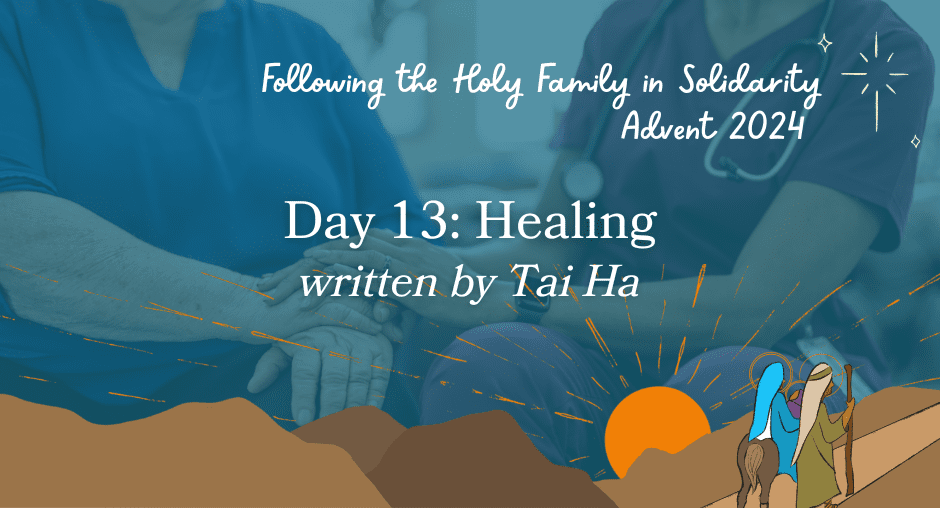Day 13: Healing

Editor’s Note: On the thirteenth day of our Advent blog series “Following the Holy Family in Solidarity,” DC Service Corps volunteer Tai Ha reflects on how he offers a ministry of presence to the patients at his ministry site, Christ House.
Every morning, before I walk into Christ House, I say hi to the patients on the patio. It is by far the most popular location, probably because it doesn’t feel like a monotonous hospital floor. And also because it’s where the patients can go out to sneakily smoke cigarettes. If I’m not running late, I stop and chat with them for a few minutes. I get my daily updates on sports news and who’s been snoring, and they hear my stories on life at the Casa and what I’m up to that weekend. I end the conversation with a “see you inside fellas” as I walk into the clinic.
In December 1985, the 24/7 respite clinic known as Christ House opened its doors with a simple motto: healing and hope for homeless persons. 39 years later, the clinic continues to live by this goal. I have been able to see care at every single level, from the physical, the mental, and the spiritual level. While the patients spend a few weeks to a few months recovering from their wounds, they work with case managers to figure out their next steps, go to addiction prevention programs, and get spiritual guidance from our in-house pastor.
Many of the patients come into the clinic on edge, overly polite, a little hostile to questions. It is difficult for them to trust a new set of faces in a completely different environment. It is especially difficult because they are physically debilitated and need medical help. This feeling of vulnerability is scary. It opens you up to being hurt and taken advantage of, but it also allows for an opportunity for growth and improvement. The clinic is a safe space for them, away from the stressors of the streets. Working with these patients has taught me a lot. It’s not just about providing medical care, it’s about fostering genuine connections. Sometimes that means playing a board game with a patient, or sitting with someone longer than expected while they complain about lunch. Being present and attentive with patients during the small moments are just as important as administering medication or changing dressings. Over the weeks that the patients spend here, I am able to build a solid rapport with them.
Caring for people requires more than a single instance of compassion or empathy, it is a consistent process that can test one’s patience. However, it is incredibly rewarding, seeing the gradual transformations that occur. My experiences have reshaped how I view healing—more than physical recovery, but the restoration of dignity, trust, and hope.
Question for Reflection: During a time of healing in your life, who offered you physical, emotional, or spiritual support?

